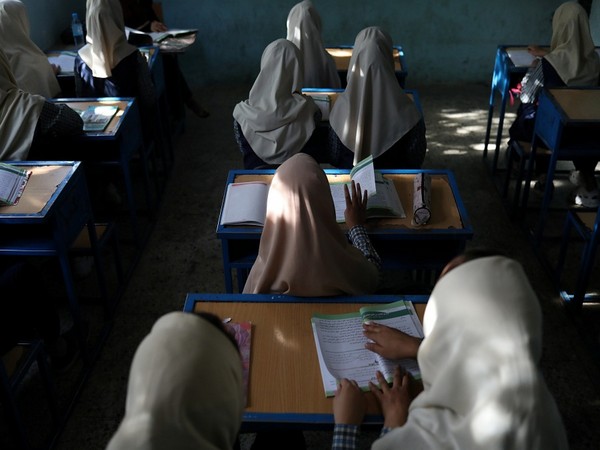UN body to hold debate on Afghan women's rights on July 1
The Geneva-based Human Rights Council (HRC) is set to convene an urgent debate on July 1 to address the human rights of women and girls in Afghanistan.

- Country:
- Switzerland
The Geneva-based Human Rights Council (HRC) is set to convene an urgent debate on July 1 to address the human rights of women and girls in Afghanistan. "The Human Rights Council is convening an URGENT DEBATE on 1 July 2022 to address the human rights of women and girls in #Afghanistan. The meeting is taking place during #HRC50, the 50th regular session of the Council," said UN Human Rights Council.
This comes as civil society organisations urged for an urgent debate at the 50th session of the UN Human Rights Council regarding the women's rights crisis in Afghanistan. Since August 2021, when the Taliban took control of the country, there has been an enormous deterioration in the recognition and protection of the rights of women and girls in Afghanistan, including with respect to the rights to non-discrimination, education, work, public participation, health, and sexual and reproductive health.
The Taliban has also imposed sweeping restrictions on the rights to freedom of expression, association, assembly and movement for women and girls. Afghanistan is now the only country in the world to expressly prohibit girls' education. Amid the plummeting humanitarian and economic conditions, women and girls in Afghanistan are being deprived of their most basic human rights -- employment and education, speakers told the Security Council on Thursday, as they examined the restrictive policies of the Taliban who took control of that country in August last year.
"Women are collectively being written out of society in a way that is unique in the world," said Ramiz Alakbarov, Deputy Special Representative of the Secretary-General, and officer-in-charge for the United Nations Assistance Mission in Afghanistan (UNAMA), briefing the Council via video-teleconference. The Taliban -- the de facto authorities -- have increasingly restricted the exercise of basic human rights, including freedom of peaceful assembly, freedom of opinion and expression, quelling dissent and restricting civic space in the country.
These restrictions, he underscored, aim at the rights and freedoms of Afghan women and girls, limiting their involvement in social, political and economic life, including the ban on secondary schooling for girls and the decision to impose face coverings on women. He also stressed that UNAMA will remain a vocal and visible voice to safeguard the rights of the people of Afghanistan, especially women and girls. Yalda Hakim, international correspondent and news presenter for BBC News, said she was speaking to the Council as someone who has been reporting from Afghanistan for the past 15 years, as well as "a daughter of Afghanistan" with a personal and deep connection with the nation.
Yalda Royan, Consultant for VOICE Amplified, said the Taliban have announced more than 30 policies that are systematically eliminating women from all aspects of society and imposing them through violence. In April, the Taliban tortured and killed a midwife in Mazar-e-Sharif, amputating her legs, stabbing her and shooting her 12 times -- simply because she was a woman and a Hazara. A massive 25 million people in Afghanistan are now living in poverty -- more than double from 2011. (ANI)
(This story has not been edited by Devdiscourse staff and is auto-generated from a syndicated feed.)
ALSO READ
Over 380 families affected by heavy rains, floods in Afghanistan
CAA, related rules brought to safeguard rights of minorities from Pak, Afghanistan & B'desh, says fresh plea
World Bank allocates USD 16 million to support women-led businesses in Afghanistan
Afghanistan presses for resolution of migrants issue with Pakistan
Ramzan: Three killed during evening prayers in Farah province of Afghanistan










